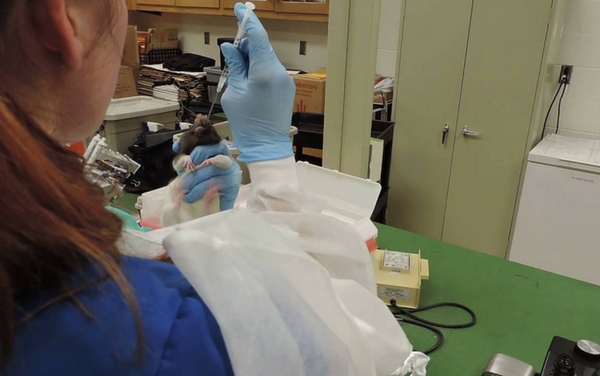Preclinical Screening

Why Outsource to a Preclinical CRO?
For small drug-discovery firms, outsourcing  screening, ADME Tox to a preclinical CRO is the only economically viable route. For companies producing large numbers of NCEs, insourcing becomes an option. However, outsourcing to a preclinical CRO has many compelling advantages associated with increased expertise and lower total costs:
- Access to a team of drug-discovery experts with Preclinical screening ADME Tox experience across a broad range of compound structures and therapeutic targets
- No setup costs for recruiting and equipment acquisition
- No delay associated with setting up an in-house department
- No wasted capacity or delays associated with uneven volumes of new compounds
- No shut down costs associated with finishing preclinical development
Why Choose Adept as Your Preclinical ADME Tox CRO?
Adept maximizes your speed and efficiency.
Scientist-to-Scientist Communications
Nothing is more frustrating to high-level scientists than to have to communicate through non-scientific sales and service personnel to get science done. That is why all accounts with Adept are served by Ph.D.-level Study Managers.
Fast Turnaround
The direction taken by medicinal chemistry is substantially influenced by ADME Tox results. While your medicinal chemists are waiting for ADME Tox results, they could be wasting time following a dead-end lead. Adept will provide ADME Tox assay results for you in just days. Moreover, for increased speed and convenience, We are ready to pick up your samples through courier.
Service Focus
Some preclinical CROs have their own drug-discovery programs that may distract them from servicing clients or even pose a risk to your intellectual property. The only drug-discovery programs Adept advances are those of our clients.
If you would like to learn more about how preclinical contract research can help your drug-discovery effort get to market faster and at lower cost, please contact our client services.
Footnotes
1. Guideline for Industry.Toxicokinetics: The Assessment of Systemic Exposure in Toxicity Studies ICH - S3A March 1995, p.4.
2a. FDA."Guidance for industry: S7A safety pharmacology studies for human pharmaceuticals" July 2001.
2b. 21 CFR 58: "Good Laboratory Practices for Nonclinical Laboratory Studies"
3. Strong, J. & Huang, S.-M. "U.S. regulatory perspective: Drug-drug interactions." In Drug-Durg Interactions in Pharmaceutical Development. Li, A.P., ed. Wiley: Hoboken, NJ. 2007, pp 201.
4. Medicines and Healthcare products Regulatory Agency